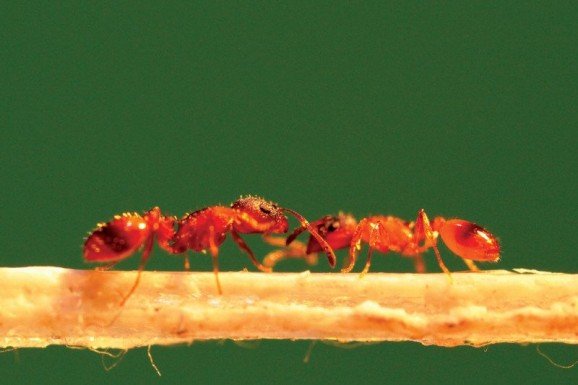Rentokil Initial plc (FTSE: RTO, “the Company”) today announces that it has entered into an agreement to form a joint venture with PCI Pest Control Pvt. Ltd. (“PCI”) and to acquire a 57% stake in the new joint venture, for an undisclosed sum. As part of the transaction, the Company will merge its Indian business into the joint venture. The combined business will be the largest provider of pest control services and products in India.
The Company will have management control of the joint venture, which will have combined annual revenues of 4.5Bn rupees (c. £50m), operate from c.250 locations and employ c.6,900 people. In the 12 months to 31 March 2016, PCI delivered revenues of 3.7Bn rupees (c. £41m).
Today’s agreement is in line with the Company’s strategy of accelerating growth in its pest control business and pursuing M&A opportunities in Growth and Emerging markets.
PCI, a privately owned company, provides a national presence in the Indian market – operating in 47 cities. Headquartered in Mumbai in Western India, it also has significant scale in North and East India. Mumbai is India’s commercial centre with one of the highest GDPs in the country and ranks as one of the world’s most populous cities (the metropolitan population is in excess of 20m). Rentokil has a strong presence in Southern India where there will be significant density benefits by combining the businesses.
Key growth drivers of pest control services in India:
High GDP growth: The United Nations World Economic Situation and Prospects 2017 report (January 2017) projects growth in India of 7.7% in fiscal year 2017 and 7.6% in 2018.
Population growth: India will become the most populous country in the world by 2028 with about 1.45Bn inhabitants (source: UN).
Rapid urbanisation: By 2030 the number of Indian cities with more than 1m people will be 68, currently 42 (source: McKinsey)
Expansion of middle classes: By 2030, urban middle class households in India will reach 91m and 590m people will live in cities, nearly twice the total USA population (source: McKinsey).
Increasing hygiene standards – safer foods and medicines: India was ranked 12th in the world for the export of food and food products in 2015, and produced 20% of global exports in generic medicines (source: IBEF).
Government initiatives – Including the drive for higher standards of hygiene and its investment in the food and pharmaceutical sectors.
Rentokil Initial estimates that the professional pest control services market in India is worth c. £200m p.a. and growing at c. 15% p.a. No figures are available for the size of the products or semi-professional markets.
As part of the transaction, which is expected to complete in March, the existing PCI business’ manufacturing facilities are being retained by the sellers and the Company has entered into an exclusive agreement to market their key pest control products in India and export them to other Emerging markets. The agreement also provides the opportunity to jointly develop new innovative products.
In 2016, Rentokil Initial’s Asia region had ongoing revenues of £118.9m (+12% year on year) and operating profits of £12.4m (+31.1% year on year). The joint venture therefore provides the Region with an exciting and significant opportunity to accelerate its revenue and profit growth. In India, revenues grew by 23.4% in 2016 alone.
Andy Ransom, Chief Executive of Rentokil Initial, commented:
“PCI is an outstanding business and by combining its national scale in India with our global expertise, we will create a market leader that is strongly positioned to take advantage of the increasing demand for commercial and residential pest control services over the coming years. Both companies operate similar business models with a strong commitment to colleagues and delivering great customer service.
“The growth potential in India is enormous. Economic activity, urbanisation, population growth and increasing urban middle classes are some of the key drivers of growth for pest control services, and we see these trends very clearly in India.”
Mr Anil Rao, Chief Executive of PCI, said:
“The joint venture is the most strategic combination of the acknowledged managerial and technical skills represented by Rentokil Initial and PCI’s premier position, broad-spectrum customer base and vast experience operating on the Indian subcontinent. It is perfectly suited and timed to capitalise on the surging demand for high quality, world-class pest management services.
“PCI is the only company in this service industry with in-house manufacturing capabilities and the unique ability to create sustainable products, better suited to a business driven increasingly by a global search for ecologically sensible solutions. This would certainly provide a great opportunity to accelerate growth and performance in India and across the region.”
International Trade Secretary, Liam Fox, said:
“This move is yet another example of the strong economic and commercial partnership between the UK and India which drives economic development and growth, leading to shared prosperity.
“India is a fast-growing market with real trade and investment potential for UK businesses and Rentokil Initial is a great example of a business taking advantage of the opportunities to put in place ambitious expansion plans.”
Source : Rentokil Initial



